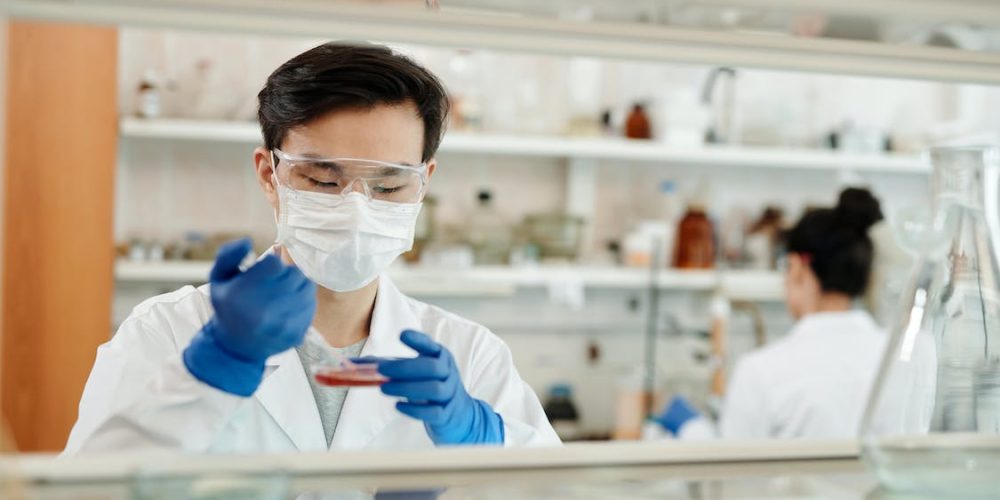Welcome to the world of laboratory science, where experiments and research are conducted in a controlled environment to unlock the mysteries of our natural world. Whether you’re just starting your journey as a scientist or working towards advancing your current lab, there is one crucial factor that determines the success of any scientific endeavor: equipment.
From microscopes and test tubes to advanced analytical instruments, the right equipment can make all the difference in obtaining accurate results and pushing boundaries in scientific discovery. Without any further ado, let’s dive into the equipment necessary for the success of your laboratory.
Lab Supplies and Consumables
Before we get into the high-tech equipment, it’s important to address the basics – lab supplies and consumables. These are essential items that are used in almost all experiments and research, such as beakers, pipettes, flasks, gloves, and lab coats. Having the right science lab equipment guarantees safety and accuracy in experiments. Keeping a well-stocked inventory of lab supplies and consumables is important for efficiency and productivity. Running out of these essential items can cause delays and disrupt the flow of work in the lab. Therefore, you should regularly check your inventory and restock as needed.
Microscopes
Microscopes are some of the most essential tools in laboratory settings, enabling researchers to explore an entirely different world of microscopic details. By magnifying objects and organisms beyond what the naked eye can perceive, these instruments have countless applications across the scientific field. There are various types of microscopes, including compound light microscopes, electron microscopes, and stereo microscopes. Each type has its own unique abilities and is used for different purposes. Regardless of the type, microscopes are there to examine cellular structures, bacteria, and other tiny organisms.

Analytical Instruments
In today’s highly competitive scientific world, these high-tech tools are designed to measure, analyze, and interpret various aspects of substances and materials. They can determine the composition, structure, and properties of a sample to provide valuable insights for further research. Some common examples include spectrophotometers, chromatographs, and mass spectrometers. These instruments are often used in chemistry, biology, and environmental science research.
Some specialized analytical instruments are needed for specific research areas. For example, a gas chromatograph-mass spectrometer (GC-MS) is used in forensics to analyze trace evidence and detect drugs or pollutants in samples.
Reagents and Chemicals
In the laboratory, reagents and chemicals are the building blocks of experimentation. Acids, bases, solvents, and other compounds are mostly used for a variety of analytical procedures, including reactions and titrations. Without them, scientists would simply be unable to conduct their experiments, a fact that underscores just how important these reagents and chemicals are.
Whether in the pharmaceutical industry, academic research, or beyond, laboratories need to have a well-stocked inventory of reagents and chemicals at all times. Proper storage and handling of these substances are paramount for both the safety of researchers and the accuracy of results.
Safety Equipment
Laboratory safety is not something that should be taken lightly. The constant exposure to hazardous materials, chemicals, and pathogens makes personal protective equipment (PPE) a necessity in the lab. Lab coats, gloves, goggles, and face masks are some of the essential safety equipment that should be readily available in every laboratory.
Even emergency eyewash stations, fire extinguishers, and spill kits need to be present for any unforeseen accidents or spills. Regularly inspect these safety equipment and ensure they are in good working condition to provide maximum protection for lab personnel.

Centrifuges
In the world of laboratory science, centrifuges are an indispensable tool for researchers and technicians alike. Designed to spin samples at incredibly high speeds, centrifuges are used for a variety of purposes, from separating cell components to isolating nucleic acids and other biomolecules.
Available in a range of sizes and styles, including microcentrifuges and ultracentrifuges, these machines have revolutionized the field of analytical chemistry and allowed us to discover new insights into the world around us. Be it studying genetics, biochemistry, or any other area of science, the use of centrifuges ensures accurate and reproducible results every time.
Ovens and Incubators
Ovens and incubators are common equipment in laboratory settings that provide controlled environments for the growth, maintenance, and storage of biological samples. Ovens are used to dry or sterilize materials while incubators maintain a specific temperature, humidity, and CO2 levels required for cell culture or other microbiological experiments.
These tools carry out experiments consistently as even slight changes in temperature or other environmental factors can significantly affect the results. That said, well-calibrated ovens and incubators are the ingredients for success in many biological experiments.
Equipment is the backbone of any successful laboratory, and this cannot be overstated. From basic supplies to state-of-the-art analytical instruments, each piece of equipment plays a crucial role in driving scientific discovery and innovation. Regular maintenance, proper handling, and adequate storage of laboratory equipment ensure they function effectively and provide accurate results. With the right tools at your disposal, there is no limit to what you can achieve in the fascinating world of laboratory science.






